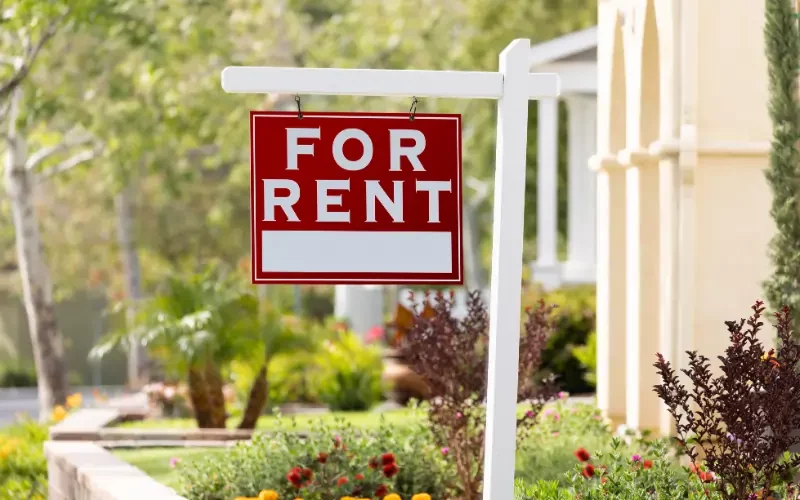
Does it seem like life has a way of throwing us curveballs at the worst time? What if you need to access your home equity but aren’t ready to move? Perhaps your children are halfway through the school year, and you don’t want to disrupt their education or, god forbid, their friend group. Or perhaps you’ve found yourself in a financial bind and need cash quickly, but haven’t yet figured out your next housing step. Whatever situation you’ve found yourself in, selling your home and renting it back might just be the solution you’re looking for.
Here at Cream City Home Buyers, we buy houses in Milwaukee and throughout Wisconsin and help homeowners who are dealing with financial situations unlock their property’s value while still maintaining their living situation. This selling option lets you change your home equity into cash without the immediate stress of finding temporary housing or dealing with an overwhelming move. Below, we’ll explain more about how this process works and hopefully help you figure out if this is the right choice for your family.
What Does It Mean to Sell Your Home and Rent It Back?
The best place to start is to explain what selling a home and renting it back in Wisconsin actually involves and how it differs from a traditional home sale. It’s actually pretty simple and is exactly what it sounds like: you sell your home to a buyer, but instead of moving out immediately, you become a tenant and continue living in the house with a rental agreement. This type of arrangement is also called a sale-leaseback.
Here we’ll break it down even further to explain the basics – you transfer ownership of your home to the buyer, get payment for the property, and then sign a rental agreement that allows you to stay in the home for a set period of time. So essentially, you go from being the property owner to a tenant and will pay rent to the new owner.
This is different from traditional sales, where you must move out immediately, and from a home equity loan, where you would maintain ownership but take on debt.
How a Rent Back Agreement Works in Wisconsin
In Wisconsin, a rent-back agreement usually starts with a standard purchase and sale agreement. This contract will outline the sale price, closing date, and other typical terms you’d find in any real estate transaction. The only difference is an additional clause or separate lease agreement that specifies the rent-back period.
The process is pretty easy to understand: you and the buyer agree on a purchase price and discuss your tenancy terms, then at closing, the sale and landlord-tenant relationship will begin at the same time.
In Wisconsin real estate transactions, it’s common for sellers to request a brief possession period after closing, sometimes using a standard possession form. However, a formal rent-back arrangement extends beyond a few days or weeks, often lasting months or even years, depending on your agreement with the buyer.
Wisconsin law treats these arrangements pretty seriously. Once you become a tenant, tenant rights in Wisconsin apply to you, which means you have legal protections regarding eviction, habitability, and other landlord-tenant matters. The same goes for the buyer; they become subject to Wisconsin landlord rules and regulations.
Key Rent-Back Agreement Terms and Clauses
A good, solid rent-back agreement should address several important elements to protect both parties. You definitely want to understand these terms to help you negotiate a fair deal and to avoid surprises down the road.
- Rental period: This specifies exactly how long you can stay in the home. Some agreements offer a fixed term (like six months or a year), while others might be month-to-month. Consider whether you need just enough time to find your next home or a longer-term solution.
- Rent amount: The monthly rent should be clearly stated in your lease agreement. The rental rate might be set at market value for similar properties in your area, or it might be negotiated as part of the overall deal.
- Maintenance responsibilities: Your leaseback agreement should specify who handles repairs and home maintenance, whether you continue these duties or the new owner takes them on as a traditional landlord would.
- Utilities and property taxes: Clarify who pays for utilities, property taxes, and homeowners’ insurance. Typically, the new owner handles property taxes and insurance, while you cover utilities and possibly renters’ insurance.
- Security deposit: Many rent-back agreements require a security deposit, just like standard rental situations. This protects the property owner against potential damage.
- Early termination clauses: Life is unpredictable. Your contract should address what happens if you need to move out earlier than planned or if circumstances change for the buyer.
This is where working with cash home buyers in West Allis and throughout Wisconsin, like Cream City Home Buyers, offers an advantage. We understand these arrangements and can help structure a deal that works for your specific situation without the complications that sometimes come up when selling a house with tenants already in place.
Benefits of Selling Your Home and Renting It Back
This arrangement offers several compelling advantages for homeowners facing various life circumstances.
- Immediate access to equity: The most obvious benefit is receiving cash from your home sale right away. Whether you need funds for medical expenses, debt consolidation, business opportunities, or other financial needs, you can tap into your home equity without taking out a loan or adding to your mortgage burden.
- No moving stress: Moving is consistently ranked as one of life’s most stressful events, and a rent-back agreement eliminates the immediate pressure to pack, find movers, and settle into a new place.
- Time to plan your next move: Instead of scrambling to find your new home before closing, you have breathing room to make thoughtful decisions. You can house-hunt without pressure, wait for the right opportunity, or even build a new home without needing temporary housing.
- School continuity: If your children are in the middle of the school year, staying in your home means they can maintain their current school and friendships until you’re ready to transition.
- Avoid closing costs overload: When you buy and sell homes simultaneously, closing costs can pile up quickly. By renting for a while, you have time to recover financially before taking on another purchase.
- Flexibility in a seller’s market: In a hot seller’s market, you might get an excellent offer on your home before you’re ready to leave. A rent-back arrangement lets you capitalize on favorable market conditions without rushing your exit.

Drawbacks and Risks to Consider
While selling and renting back your home offers benefits, you need to consider the potential downsides carefully.
- You’re no longer the owner: This is the most significant change. You lose the long-term investment potential of homeownership and the pride of owning your primary residence. You’re now subject to your landlord’s rules and decisions about the property.
- Emotional attachment: Living in a home you no longer own can feel strange, especially if the property holds meaningful memories.
- Rental uncertainty: Unless you negotiate a very long lease, you’ll eventually need to move and might face rent increases if you extend your stay.
- Market timing risks: If you’re planning to buy another home later, you’re taking a risk on future market conditions. Home prices might increase while you’re renting, potentially pricing you out of the market you hope to re-enter.
- Landlord relationship: The quality of your experience depends heavily on your new landlord. Problems can arise if the buyer has different expectations about maintenance, rent payments, or lease terms than what you anticipated.
- Limited control: As a tenant, you can’t make changes to the property without permission. That remodeling project or paint color you wanted? You’ll need your landlord’s approval.
Questions about tenant sales: Some homeowners ask, “Can a landlord sell a house with tenants living in it“? Yes, your landlord could potentially sell the property again during your rental period, though your lease agreement should address this situation and your rights as a tenant.
Key Real Estate and Legal Factors
Navigating a sell-and-rent-back deal in Wisconsin requires understanding both real estate and legal considerations.
Working with professionals: Consulting a real estate attorney can protect your interests by reviewing your sale agreement and lease terms. A real estate agent might provide insights about local market conditions, though working directly with cash buyers often streamlines the process.
Wisconsin-specific regulations: Wisconsin has specific landlord-tenant laws that will govern your rental relationship. These cover everything from how much notice is required for lease termination to habitability standards for rental properties. Understanding these protections helps you know your rights as a tenant.
Title and lien considerations: Before the sale closes, any existing liens on your property must be addressed. Your mortgage lender will need to be paid off from the sale proceeds, and any other debts secured by the home must be resolved.
Disclosure requirements: Even though you’re staying in the home, you still have disclosure obligations as a seller. You must inform the buyer of any known defects or issues with the property.
Insurance transitions: Your homeowners’ insurance will end when you’re no longer the owner. The buyer will need to secure their own landlord or property insurance, and you should obtain renters insurance to protect your personal belongings.
Tax implications: The IRS has specific rules about capital gains on home sales. Generally, if the property was your primary residence for at least two of the five years before the sale, you might qualify for capital gains exclusions. However, once you’re renting, the property is no longer considered your primary residence for future tax purposes.
Financial Considerations: Rent, Equity, and Taxes
Let’s talk numbers. Understanding the financial aspects of a sell-and-rent-back arrangement helps you make an informed decision.
Calculating your proceeds: Start with your home sale price, then subtract what you owe on your mortgage, closing costs, and any other fees associated with the sale. What remains is the equity you’ll receive. This cash offer provides the immediate funds that make this arrangement attractive.
Rent versus ownership costs: Compare what you’ll pay in rent to what you currently spend on your mortgage, property taxes, insurance, and home maintenance. In some cases, renting might actually cost less monthly than homeownership, especially if you factor in unexpected essential repairs that you’re no longer responsible for.
Building wealth considerations: Remember that rent payments don’t build equity—they’re simply housing costs. When you pay a mortgage, you’re gradually increasing your ownership stake. As a renter, you’re paying for the right to occupy the space without building long-term wealth through property appreciation.
Capital gains taxes: If your home has appreciated significantly and your gain exceeds the IRS exclusion amounts ($250,000 for single filers, $500,000 for married couples filing jointly), you might owe capital gains taxes on the sale. Consult a tax professional to understand your specific situation.
Using your proceeds wisely: Think carefully about how you’ll use the money from your home sale. Will it eliminate high-interest debt? Fund a business venture? Cover medical costs? Provide retirement income? Having a clear plan helps ensure this financial move serves your long-term interests.
Reverse mortgage alternative: Some older homeowners consider a reverse mortgage as an alternative to selling. While both options provide access to equity, they work very differently. A reverse mortgage keeps you as the owner but creates debt that must eventually be repaid, while selling provides clean cash but ends your ownership.
Sell Your House Fast In Wisconsin For Cash, No Inspections Needed!
We buy houses for cash and as-is and at the best price in the market.
Just fill out the form below or give us a call at: (414) 488-0082 to get your free, no-obligation cash offer!
Steps to Sell Your Home and Rent It Back with Cream City Home Buyers
Working with us makes the sell and rent back process straightforward. Here’s how our home buying process works:
Step 1: Contact us: Reach out to get a cash offer today on your home. You can call, fill out our online form, or visit us in person. We’ll ask some basic questions about your property and your situation.
Step 2: Property evaluation: We’ll schedule a time to see your home. Unlike traditional buyers who might nitpick every flaw, we buy houses in any condition. We’re interested in the property’s potential and your needs, not demanding costly repairs before purchase.
Step 3: Receive your offer: Within 24-48 hours, we’ll present you with a fair cash offer based on your home’s condition and local market values. Our offer considers both the sale price and your need to remain in the home, so we can structure the deal accordingly.
Step 4: Negotiate the rent-back terms: This is where we discuss the details of your rental arrangement. How long do you need to stay? What monthly rent works for your budget? What responsibilities do you want to handle versus what we’ll manage? We work with you to create a fair leaseback agreement that meets your needs.
Step 5: Review the contract: We’ll provide clear closing documents that outline both the sale terms and the lease terms. This is a good time to have a real estate attorney review everything if you’d like that additional assurance.
Step 6: Close the sale: We can often close in as little as seven days, though we’ll work with your timeline. At closing, you’ll receive your payment, and we’ll finalize the rental agreement. There’s no waiting on mortgage lender approvals or worrying about deals falling through—our cash offer means a guaranteed close.
Step 7: Continue living in your home: After closing, you simply transition to paying rent instead of a mortgage. We handle this relationship professionally and respectfully, treating you as a valued tenant.
If you’d like to learn more about our company and our approach to these unique real estate situations, we encourage you to reach out. We’ve helped many Wisconsin homeowners navigate challenging circumstances, and we’re here to provide solutions, not complications.
Is Selling and Renting Back Right for You?
Honestly, this arrangement isn’t for everyone,, but it might be a good option for you if some of these factors line up with your situation.
Consider this option if:
- You need immediate cash, but haven’t found your next home yet
- Your children are in the middle of the school year
- You’re waiting for a new home to be built or renovated
- You want to test out renting before committing to another purchase
- You’re facing foreclosure and need to avoid the credit impact
- You have significant equity, but struggle with mortgage payments
- You need time to organize a major move to another state
This might not be the best choice if:
- You’re deeply emotionally attached to the home
- You can access funds through a home equity loan
- You can coordinate a traditional sale with your move
- You want to maintain the investment benefits of homeownership
- You’re uncertain about whether to rent or sell your house in WI and need more time to decide
Ultimately, this decision depends on your unique circumstances, financial goals, and emotional readiness to transition from owner to tenant in your own home.

Final Thoughts
You’ve probably heard the saying “When life gives you lemons, make lemonade”. Maybe selling your home and renting it back is like making lemonade out of a tough life situation. If you need cash quickly, a bit more time to figure out your next step, or just want to avoid a rushed move, this gives you flexibility that a traditional sale doesn’t.
But making this work comes down to finding the right buyer—someone who understands your situation and can put together a deal that makes sense for you. At Cream City Home Buyers, we can help you sell your house fast in New Berlin, Milwaukee, West Allis, and throughout Wisconsin, and we’re all about finding flexible solutions for homeowners in tough spots.
We’re not just another real estate company looking to make a quick buck. We’re your neighbors, we care about Wisconsin communities, and we’re committed to helping homeowners work through tough decisions without the pressure or runaround. When you work with us, you’re working with people who actually care about what’s best for you—not just getting another deal done.
If you’re considering whether to sell your house and rent it back, or if you’re exploring other options for your property, we’re here to talk through your situation without pressure or obligation. Every homeowner’s story looks different, and we want to take the time to understand yours. Requesting a cash offer is super easy, and you’re under no obligation to sell to us. We just want you to move forward with confidence, which could mean staying in your home as a tenant or going in a different direction entirely.
